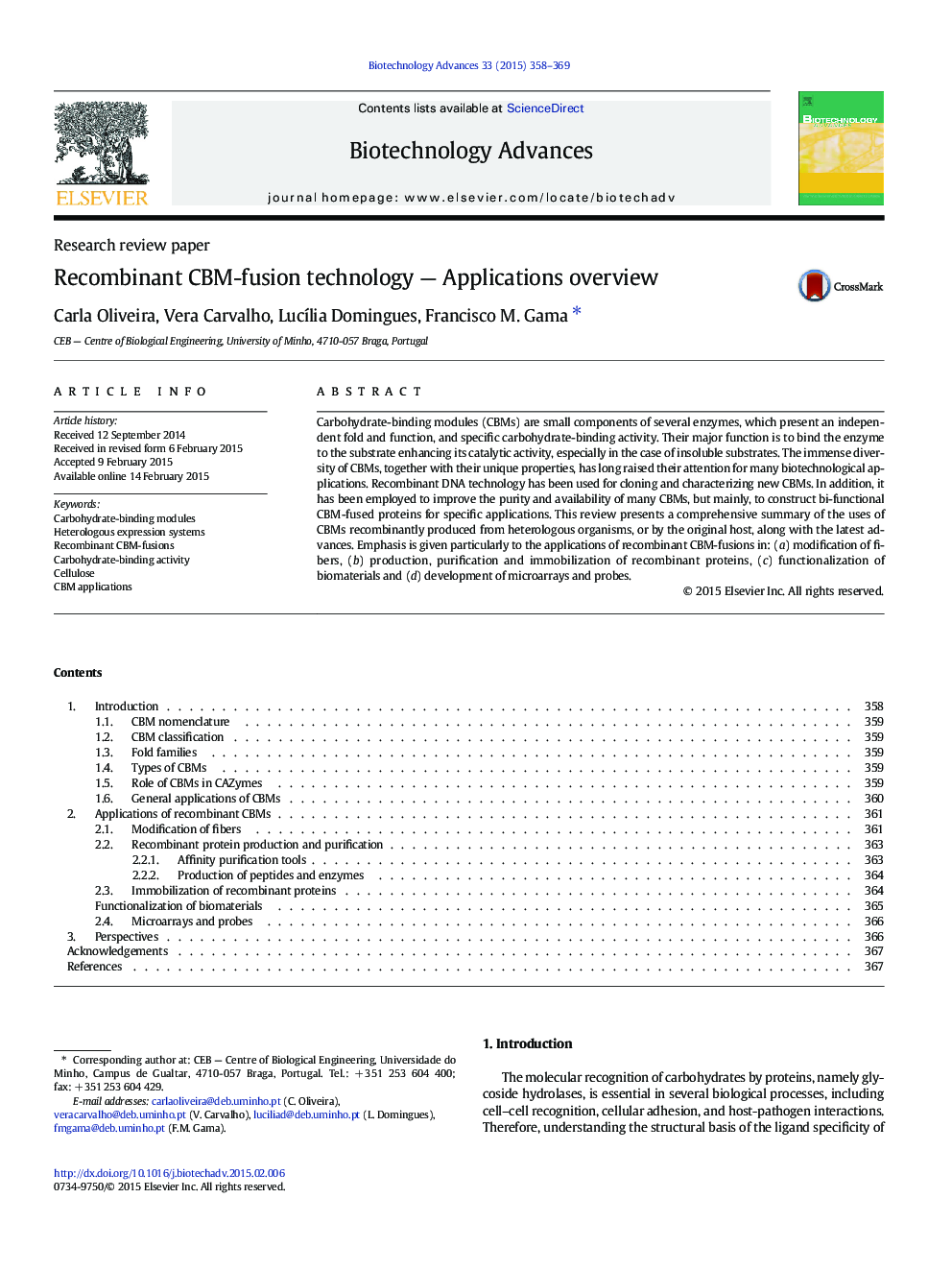| Article ID | Journal | Published Year | Pages | File Type |
|---|---|---|---|---|
| 14220 | Biotechnology Advances | 2015 | 12 Pages |
Carbohydrate-binding modules (CBMs) are small components of several enzymes, which present an independent fold and function, and specific carbohydrate-binding activity. Their major function is to bind the enzyme to the substrate enhancing its catalytic activity, especially in the case of insoluble substrates. The immense diversity of CBMs, together with their unique properties, has long raised their attention for many biotechnological applications. Recombinant DNA technology has been used for cloning and characterizing new CBMs. In addition, it has been employed to improve the purity and availability of many CBMs, but mainly, to construct bi-functional CBM-fused proteins for specific applications. This review presents a comprehensive summary of the uses of CBMs recombinantly produced from heterologous organisms, or by the original host, along with the latest advances. Emphasis is given particularly to the applications of recombinant CBM-fusions in: (a) modification of fibers, (b) production, purification and immobilization of recombinant proteins, (c) functionalization of biomaterials and (d) development of microarrays and probes.
